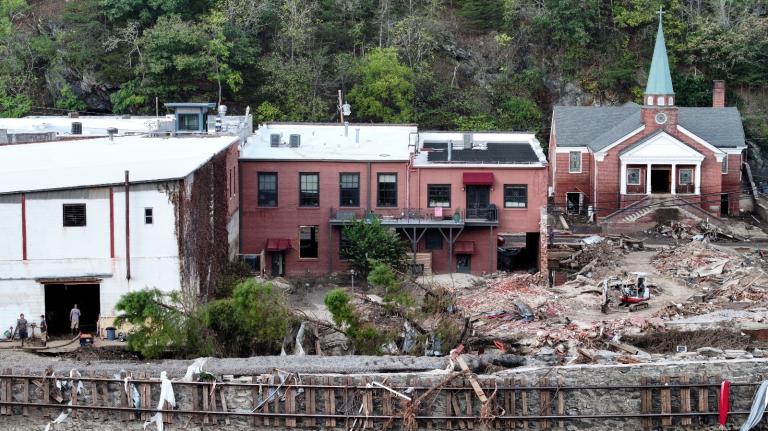 James Hansen.“We are taking the fight to them because we are … tired of taking the hits,” Scott Mandia, professor of physical sciences at Suffolk County Community College in New York, told the Chicago Tribune. “The notion that truth will prevail is not working. The truth has been out there for the past two decades, and nothing has changed.”
James Hansen.“We are taking the fight to them because we are … tired of taking the hits,” Scott Mandia, professor of physical sciences at Suffolk County Community College in New York, told the Chicago Tribune. “The notion that truth will prevail is not working. The truth has been out there for the past two decades, and nothing has changed.”
A group of some 700 climate scientists have agreed to speak out as experts on questions about global warming and the role of man-made air pollution. James Hansen from NASA’s Goddard Institute for Space Studies says scientists are bowing to pressure to be conservative in their pronouncements, leading them to underplay the rate of future sea-level rise, which he now projects will be “on the order of meters on the century timescale.”
Meanwhile, regional planners who must help their areas adapt to climate change aren’t waiting for the level of public concern to reach a fever pitch.
Get ready for the climate disaster that is unconventional fuels: The International Energy Agency’s World Energy Outlook for 2010 is out, and it says we’re never going to produce more conventional crude oil than we did in 2006, when production peaked at 70 million barrels per day.
Simultaneously, a new study suggests we’ll run out of oil approximately 90 years before adequate replacements are ready.
Fatih Birol, head of International Energy Agency, projects rather than a Kunstlerian collapse of civilization or an Amory Lovins-esque graduation to a future of efficiency and renewables, what comes next is a steady ramp up of unconventional fuels, including the tar sands of Alberta and “natural gas liquids.” Look for today’s oil fields to go from around 70 million barrels of oil a day today to around 20 million barrels a day by 2035.
To the extent biofuels are a part of that mix, a new paper says they are even worse than conventional fossil fuels because of the land-use changes they will cause the conversion of “26650 square miles of wild land into fields and plantations, depriving the poor of food and accelerating climate change.”
This November, the biggest winner of all was … coal!: By now most of us know West Virginia just replaced the late Sen. Robert Byrd, who had begun to voice concerns about the intersection of coal and climate change, with Joe Manchin, a candidate who gave us one of the campaign season’s most memorable ads, in which he shot the climate bill. It’s part of a larger trend in state, federal, and even global politics, says author Jeff Goodell, who also argues the more or less unmitigated explosion of the use of coal is driven as much by campaign contributions as its status as the world’s cheapest fuel.
Speculation is rampant that Manchin is being courted to switch parties by the GOP. Notable among the goodies supposedly being dangled in front of Manchin include support for one of his “pet projects” — a plant for turning coal into diesel automotive fuel.
Senate Minority Leader Mitch McConnell (R-Ky.) thinks now that the climate bills introduced by legislators have been declared finally, totally, utterly and completely dead, there’s plenty of opportunity for bipartisan action on energy, as long as it’s limited to nuclear power, electric vehicles, and clean coal.
Failure at Copenhagen upped the price of avoiding Klimakatastrophe $1 trillion: Last year’s International Energy Agency’s World Energy Outlook pegged the cost of reducing greenhouse-gas emissions so as to avoid exceeding 450 parts per million of atmospheric carbon dioxide (the threshold the U.N. has set as the upper limit for a “safe” climate) at $10.6 trillion. Failure at Copenhagen has boosted that price to $11.6 trillion, which suggests Mother Nature is engaging in some seriously usurious carbon accounting.
Is Europe going to tax our dirty carbon-emitting goods?: “If countries such as the United States continue to avoid climate cuts, while the European Union keeps making its industry pay for permits to emit carbon dioxide, trade imbalances will start to occur. Some E.U. companies are already calling for border tariffs to be slapped on imports to restore the balance.”
Battle for the soul of the Clean Air Act: Everyone wants to sue the U.S. Environmental Protection Agency to prevent it from regulating greenhouse gases, even though its powers are already constrained. Food and farm groups have joined forces with the oil industry to sue the EPA over what they say is inadequate research into whether or not the new 15 percent blend of ethanol is safe for people and cars. In a preview of 2011, the war of words between the EPA and Congressional Republicans continues to escalate.
The Climate Post offers a rundown of the week in climate and energy news. It is produced each Thursday by Duke University’s Nicholas Institute for Environmental Policy Solutions.



